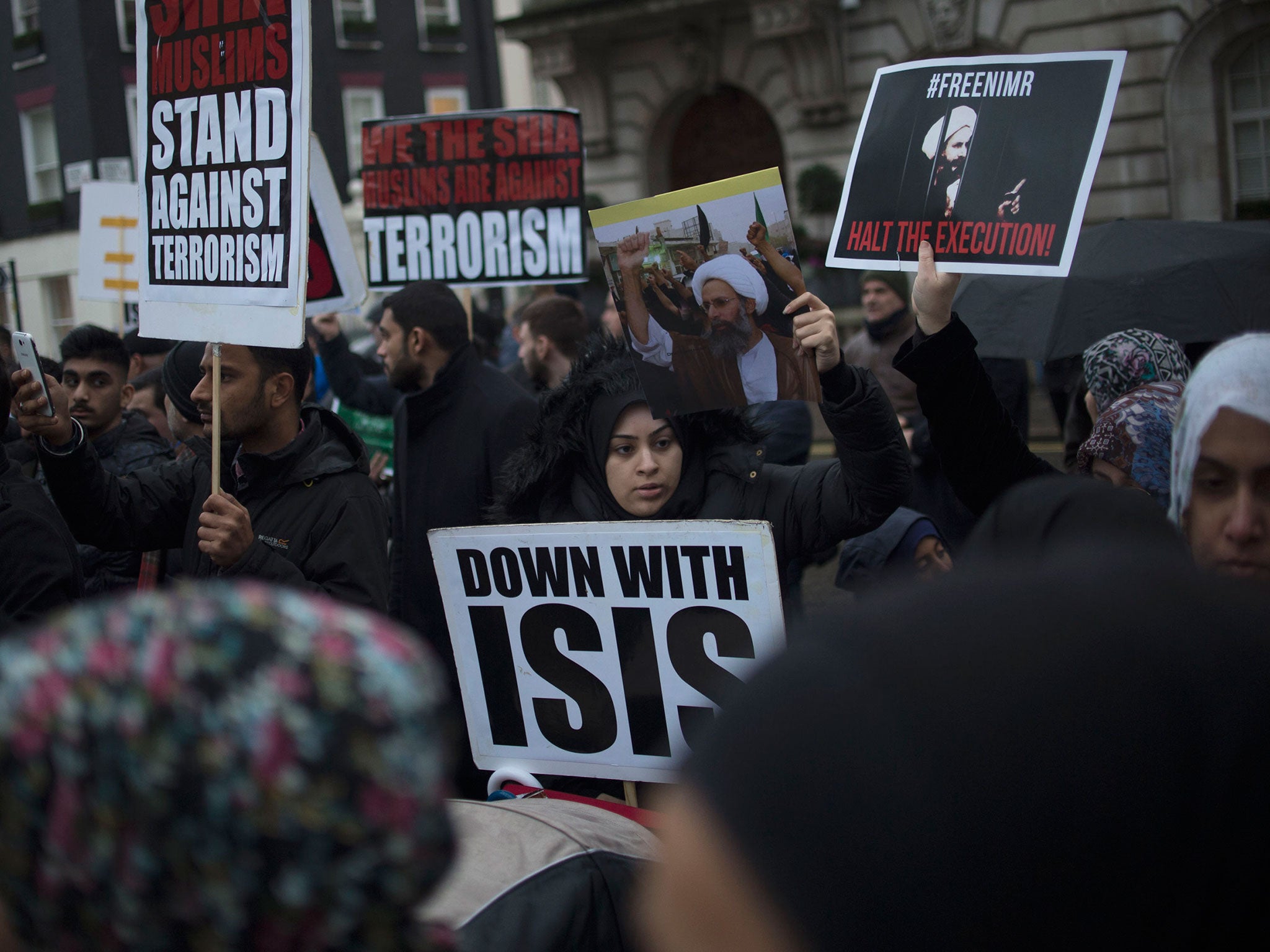Saudi Arabia executions: The death penalty is abhorrent and our leaders should say so at every opportunity
It would enhance Britain’s standing in the world if our Government condemns the beheading of 47 people in clear and forthright terms

Your support helps us to tell the story
From reproductive rights to climate change to Big Tech, The Independent is on the ground when the story is developing. Whether it's investigating the financials of Elon Musk's pro-Trump PAC or producing our latest documentary, 'The A Word', which shines a light on the American women fighting for reproductive rights, we know how important it is to parse out the facts from the messaging.
At such a critical moment in US history, we need reporters on the ground. Your donation allows us to keep sending journalists to speak to both sides of the story.
The Independent is trusted by Americans across the entire political spectrum. And unlike many other quality news outlets, we choose not to lock Americans out of our reporting and analysis with paywalls. We believe quality journalism should be available to everyone, paid for by those who can afford it.
Your support makes all the difference.Any British prime minister taking office is required to undergo a secret ritual. He or she has to kiss the monarch’s hand, write letters for the commanders of the nuclear submarines, and agree to defend the UK’s alliance with Saudi Arabia.
The best that can be said about David Cameron’s discharge of this third obligation is that at least he has the decency to look embarrassed about it. He seemed uncomfortable in a television interview in October when he was asked about the squalid deal in which the two governments agreed, in 2013, to support each other’s election to the UN Human Rights Council. “We have a relationship with Saudi Arabia,” was all the Prime Minister could manage. He said he “completely disagreed” with the country’s “punishment routines”, but the relationship was important for our national security.
The problem with this claim is that it is impossible for the average citizen to verify. We can all have a view on the arms trade, or of the value of trading generally with an authoritarian theocracy. But the claims of intelligence co-operation have to be taken on trust. “There was one occasion since I’ve been Prime Minister where a bomb that would have potentially blown up over Britain was stopped because of intelligence we got from Saudi Arabia,” Mr Cameron said. Even if this is the case, and such intelligence would not have been shared with us if our relationship had been slightly less close, we still have moral obligations as a nation. If Saturday’s 47 beheadings does not prompt those obligations, Britain’s ethical stature is diminished.
The death penalty is abhorrent and our leaders and diplomats should say so at every opportunity, but this is a particularly shocking example. The Saudi law of January 2014 does not merely criminalise dissent, it defines it as terrorism and imposes the harshest penalties. The early silence from Mr Cameron was deafening, and the failure of the Foreign Office to put out more than a vague statement of disapproval of the death penalty was feeble in the extreme. This is all the more disappointing because, a few days after the awkward interview already quoted, Mr Cameron sided with Michael Gove, the Justice Secretary, to resolve a Cabinet dispute with Theresa May, the Home Secretary, to cancel a contract to supply prison services to Saudi Arabia.
It was after that decision that the Saudi ambassador to London wrote that he felt there had been “an alarming change in the way Saudi Arabia is discussed in Britain”. If the ambassador is alarmed, this confirms that British disapproval does count for something.
We had hoped that the cancellation of the prisons contract might mark a recalibration in our relationship with Saudi Arabia. It would make sense, even in cynical terms, over the medium to long term, to downgrade it. The Kingdom is not the fabulously rich country it once was. Even if the best way of persuading Saudi Arabia to respect human rights is as a candid friend, it might be more persuasive if its rulers were in a permanent state of incipient alarm about the strength of that friendship.
The Independent on Sunday understands that compromises are needed in life and diplomacy. We do not advocate the end of the British arms industry, or a foreign policy that refuses to work with any government that fails to live up to the best human rights norms. But we believe that it would enhance Britain’s standing in the world if our leaders would condemn the Saudi government in clear and forthright terms. It might be diplomatic if our PM could tell the Saudis that he understands their problem with dissidents. But if only he could say, in the words of Iyad El-Baghdadi, the Arab Spring activist expelled from UAE for his ideas: “The antidote to bad ideas is better ideas, not beheadings.”
Join our commenting forum
Join thought-provoking conversations, follow other Independent readers and see their replies
Comments